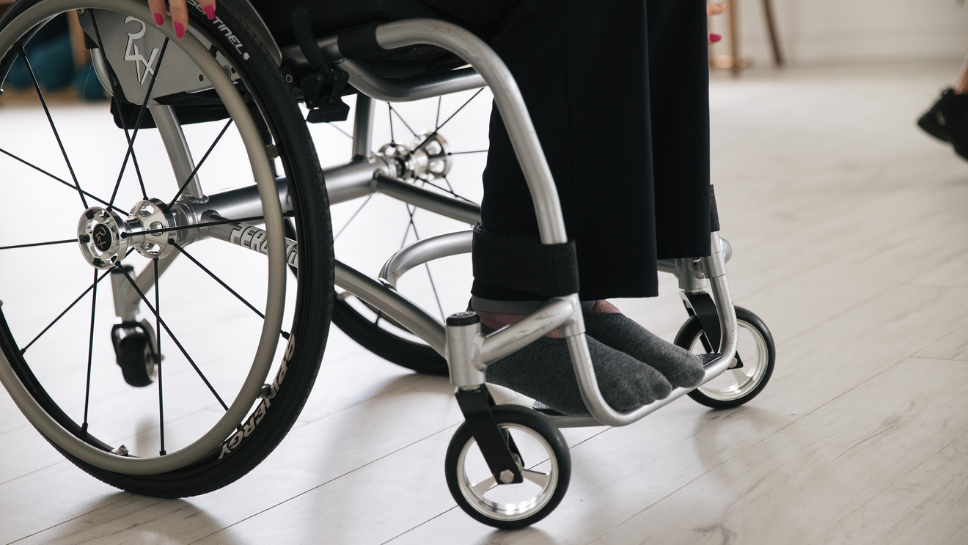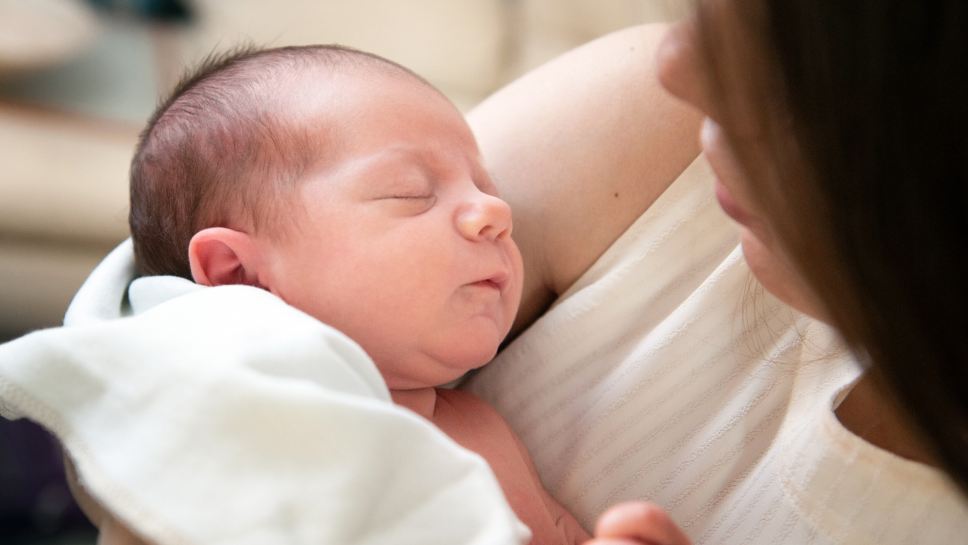Defeating Duchenne Kerr's Cause
- Read more about Defeating Duchenne Kerr's Cause
- Log in to post comments

Being diagnosed with a muscle-wasting condition often means adjusting to a new and unexpected reality. We know that living with a muscle-wasting condition can have an impact on every part of your life, including your mental health and wellbeing.
We have heard from many people who say they feel isolated because of their condition, and that they have experienced heightened feelings of anxiety and depression as they adjust to their diagnosis. Some have said they struggle to relate to other people within the muscle wasting community because their experiences are different. The impact also goes beyond those living with a muscle wasting condition to families and carers, who can also be affected.
Mental health refers to our emotional, psychological, and social wellbeing. It affects our thoughts and feelings, and how we act and behave. It also affects how we respond to stress, how we interact with others and the choices we make.
It’s important that everyone can access support for their mental health when needed. That’s why we’re committed to improving access to mental health support for people living with muscle wasting and weakening conditions. From the point of diagnosis and at every stage after.
As part of our Mental Health Matters campaign, we continue to press for change and take forward the recommendations from the APPG for muscular dystrophy and our Shining a Light report. Calling for improved access to mental health services, provided by professionals who understand muscle-wasting conditions.
Working in partnership with Louise Halling, a professional counsellor and psychotherapist, who lives with limb girdle muscular dystrophy, we have designed our virtual therapeutic support groups. Through her lived and professional experience, Louise has a unique perspective on the ways that muscular dystrophy can affect the emotional health of an individual, and their close family members.
Starting in October, the programme will bring together small groups over six consecutive weeks, to meet for an hour each week, supported by Louise as the group facilitator.
The groups are run in a similar style to a ‘facilitated peer support group’, essentially a safe and supported counselling and therapy setting. This provides a confidential, trusted, honest, protected space, which encourages open, emotional, and psychological discussion, while also allowing you to build a significant connection with one another.
Register your interest. And then, we’ll arrange an online assessment with Louise to talk about your needs and whether you will be suitable for the group.
Please note, places are limited and you may be added to a waiting list until a place become available.

There is a target in place for people to be assessed and wheelchairs to be delivered to them within 18 weeks of a referral, but thousands were forced to wait longer across England.
Latest figures from NHS England show 82% of children and 86% of adults received wheelchairs within 18 weeks or less. A slight improvement from last year where the numbers stood at 80% and 85%, respectively.
Neeru Naik, Deputy Director of Care, Campaigns and Support at Muscular Dystrophy UK said: “It’s encouraging to see that there has been a slight increase in both children and adults receiving prescribed equipment within 18 weeks. But the figures highlight that more needs to be done to support people like the 110,000 adults and children in the UK living with a muscle wasting and weakening condition to ensure that they have the correct equipment.
For example, appropriate wheelchairs, with moulded seats and risers to meet the needs of those with muscle wasting conditions is still difficult to access. The charity’s free helpline has seen an increase in calls from those who are struggling to access appropriate equipment.”

On 1 August 2023, the National Institute of Health and Care Excellence (NICE) formally launched its appraisal of the Duchenne muscular dystrophy treatment vamorolone. It has been created as a potential alternative to steroid treatment, also known as corticosteroids or glucocorticoids. Steroid treatment is a routine part of treatment for Duchenne as it can improve muscle strength; however, it can have significant side effects that reduce the quality of life for those taking it.
We are partnering with Action Duchenne and Duchenne UK to make sure the views of the Duchenne community are heard by NICE in the appraisal process, scheduled to take place on 5 March 2024.
How you can share your views
Along with our partners, we are surveying people with Duchenne muscular dystrophy and their families about their experience of steroid treatment and of vamorolone, should you have been part of vamorolone treatment trials. The information gathered will be used in the submission of written evidence to NICE by patient organisations. The survey is open until 17 September. It is an anonymous survey and will take you around ten minutes to complete. We are not gathering any personal data that can identify you or be used to contact you.
NICE is also looking for people with experience of receiving vamorolone to speak at the appraisal meeting in March. If this is something that you would be interested in doing, please contact campaigns@musculardystrophyuk.org by Wednesday 23 August.

Today NHS England have released new data which shows nearly three in four babies born with Spinal muscular atrophy (SMA) are now surviving for two years or more thanks to advances in NHS treatment.
The new data, from the national SMA Research and Clinical Hub (SMA REACH UK) database, also suggests a significant reduction in deaths from the most severe form of SMA, SMA1, with just 11 deaths in total recorded across the UK between March 2018-March 2023 – compared to around 25 deaths each year in England between 2008-2017, according to ONS data.
The data predominantly demonstrates the initial impact of injectable drug nurinersen (Spinraza®) – the first treatment to target the underlying cause of SMA – which was made available on the NHS in England from Summer 2019.
With the introduction of two other treatments – gene therapy Zolgensma® and oral treatment risdiplam secured in 2021 - the NHS has ensured access to treatment for patients with types 1, 2 and 3 SMA, and it is hoped all three treatments will continue to deliver improved outcomes as more data is collected. MDUK played a crucial role in securing access to these treatments, working in partnership with clinicians, families and other patient groups to advocate for NICE and the Scottish Medicines Consortium to recommend their use on the NHS and serving as members of the Managed Access Oversight Group (MAOG) for nusinersen and risdiplam.
Rob Burley, Director of Care, Campaigns and Support at Muscular Dystrophy UK said: “This new data is a vital illustration of the huge progress that has been made in the treatment of SMA and comes as NICE starts the process of making long-term recommendations about access to nusinersen and risdiplam. A key factor in the how much benefit people with SMA get from these new treatments is receiving them as early as possible. We are working as part of the UK SMA Newborn Screening Alliance to secure SMA’s inclusion in the NHS Newborn Screening Programme so that these treatments can be given to people with SMA before symptoms develop and vital muscle function is lost”.
Visit our campaigns page to find out more and sign up to hear about our latest news, campaigns, research, and ways you can support us.
New research carried out by MDUK-funded researchers has led to the discovery of a potential cause of facioscapulohumeral muscular dystrophy (FSHD).